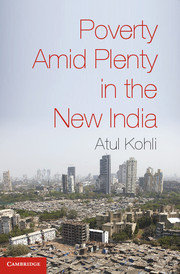1 - Political Change
Illusions of Inclusion
Published online by Cambridge University Press: 05 June 2012
Summary
India is governed as a vibrant democracy. While the quality of government provided by India's democracy remains uneven, the survival and institutionalization of democracy in a large, poor, multiethnic society is India's singular achievement. In this chapter I provide some background materials that help shed light on how and why democracy has put down roots in India. The focus of this chapter, however, is on the changing character of India's contemporary democracy. In the discussion that follows, two themes are emphasized. First, the Indian state over the last few decades has become more and more pro-business. I analyze both the causes and consequences of this important shift. And second, the political management of a narrow ruling alliance creates numerous electoral and institutional challenges, especially the challenge of how to deal with the excluded masses. I analyze the political strategies pursued by both the rulers and the ruled.
Background
By the time the British left India in the mid twentieth century, key elements of what would eventually become a sovereign, democratic Indian state were already in place. Summarizing a complex history, one might suggest that the British left behind such moderately well-functioning state institutions as a civil service, an army, and a judiciary. Indian nationalists, in turn, knit together diverse elements of India's political society and adopted a parliamentary democracy with full adult suffrage. Thus, avowedly working against each other, the colonial rulers of India and Indian nationalists together laid the foundations of the modern democratic Indian state.
- Type
- Chapter
- Information
- Poverty amid Plenty in the New India , pp. 19 - 78Publisher: Cambridge University PressPrint publication year: 2012

